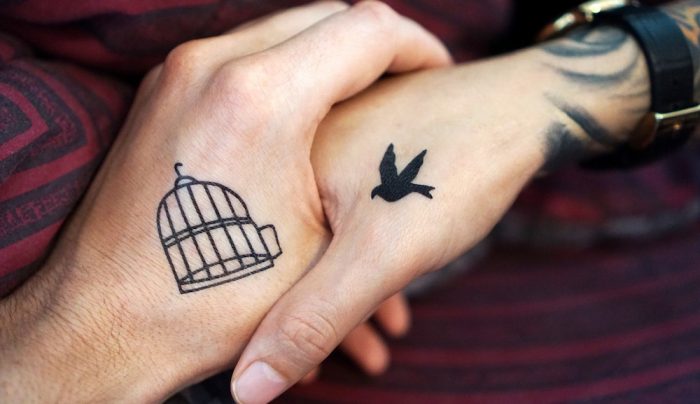Whispers of, “Yeah I know, they’re so codependent,” or “I just had to take a step away from the relationship because it was getting too codependent,” is something most of us have overheard, or spoken, at one point or another.
For me, codependence brought up feelings of shame, desperation, and unworthiness. When I was first told by a mentor that she considered my relationship “codependent,” I harshly denied it and took offense to her words. I remember walking around the room, brows squinted, throat tight with irritation, as I said, “I disagree with you. Partners are supposed to be in it together. They show up for each other in times of need.” I wasn’t wrong, but I was unclear with the true nature of what she was trying to express.
What she was seeing that I wasn’t is, in retrospect, quite clear. I was at a point in my life when I was sacrificing my boundaries, needs, and energy to a person who was giving little in return, simply because he was unable to.
After that phone conversation, I researched the definition of “codependency” and had a pit in my stomach sink deeper and deeper as I finished reading.
Codependency: noun
excessive emotional or psychological reliance on a partner, typically one who requires support on account of an illness or addiction.
The virtue in this extensive learning experience was that I learned all the ways I needed to be loved. It took a while—years, in fact—but finally huge realizations came after he continued to be unable to show up in the ways I needed and desired. I was stuck in a cycle of “fixing” his addiction, then everything being “good” for a while because I had straightened him out again, and ultimately being let down time and time again when he would fall back into destructive patterns.
Finally, a massive realization broke through my self-made facade: I had been reliant on him to give me the feelings of accomplishment, nurturing, and helping that made me feel purpose in life. That was my addiction. I gave him the power over my love for years, and at the end of it all, all I was left looking at was a reflection of myself and my desire for belonging.
Shortly after I ended the relationship, I stumbled upon a beautiful poem by one of my favorite poets, Rupi Kaur, from her book Milk and Honey. It resonated deeply with me, and I knew there was medicine in her words:
“what i miss most is how you loved me. but what i didn’t know was how you loved me had so much to do with the person i was. it was a reflection of everything i gave you. coming back to me. how did i not see that. how. did i sit here soaking in the idea that no one else would love me that way. when it was i that taught you. when it was i that showed you how to fill. the way i needed to be filled. how cruel i was to myself. giving you credit for my warmth simply because you had felt it. thinking it was you who gave me strength. wit. beauty. simply because you recognized it. as if i was already not these things before i met you. as if i did not remain all these things after you left.”
To me, this poem speaks to the inner self and its discovery of a new meaning to “self-love,” particularly after the devastation and pain of a lost relationship.
She outlines a key component in healing from such a loss; she speaks to her courage as she took back all the credit she had given away for how powerful, exquisite, and unconditional the love she gave away was. It is the reflection of how we so easily give up our power to someone else in relationship, when truly it is only ourselves who know the ways we need to be loved.
Yet so many times we attempt to make the other person “figure it out,” and when they do, only by following the clues we leave for them, we then applaud them and continue to place this person on a pedestal for loving us in the ways that we desire. When in reality, all we needed was to give ourselves that love in the first place. No games, no let downs, and no losing party.
It is significant to mention, when speaking to the psychology of relationship and the motives of codependency, to talk about the root of the word. “Dependence” is actually critical to the functioning of a healthy relationship—as long as it remains in balance.
Being able to depend on your significant other is necessary to build trust. Will they answer the phone if you’re in distress? Are they true to their word? Do they have integrity, and do they follow through with promises?
This dependence can get out of balance, such as times when “I can’t go to this event if my partner can’t accompany me,” when we start looking for external validation, or when assumptions begin to take root. Many times, this is the beginning of the end of relationships. However, this kind of demise can be avoided so long as the healthy dependence leads to establishing boundaries and creating a space for more honest communication on needs and wants.
Please remember this: it is not only permissible, but healthy, to have needs in a relationship. When you are able to clarify your needs, you are being authentic to who you are.
We come into relationships, on a spiritual perspective, for the purpose of learning more about ourselves through our mirror. In the moments when we are able to communicate our needs, we take our power back. By establishing, “Hey, this is how I need to be loved, this is how I need you to show up so I can feel like I can depend on you,” there is great medicine in what we can learn about ourselves.
What it is we will and will not stand for offers another opportunity for growth. This is where we clarify our boundaries, and also happens to be the exact moment we shift out of codependency and into wholeness.
My mentor and astrologer Beth Friedman spoke these words to me that will remain in my philosophy for the rest of my existence. She said, “Honey, love lives only in communication. Without communication, there’s no love. Do you get that? There’s a million ways it can be communicated but if there’s no communication of that, it doesn’t exist, because it can’t be received.”
Being able to speak your truth with conviction and then being willing to walk away if this partner is unable, unwilling, or simply not compelled to walk forward toward you in the ways you need this love to be communicated is the first step to the reclamation of your self-love. You need not convince anyone of anything. You do not need to compromise the integrity of what your heart desires to be fulfilled in a relationship.
And then there’s the other side of this, too. It is unhealthy to harbor resentment, rejection, or regret for this other person’s inability to show up to the table. Invite understanding into your repertoire, because they too are a soul on a learning experience through the mirror of another. Even if this other person isn’t as clear or spiritually conscious as you, their soul is still accumulating the lessons necessary for their highest and best growth in the grand scheme of things.
Consider yourself both a teacher and a student when it comes to a relationship. Through each relationship, you clarify and define the ways that you need to be loved. Codependent relationships only elevate, accelerate, and intensify the lesson, particularly when it comes to twin flame relationships.
With all this said, the desire to have beautiful things, people, situations, and relationships in your life is not in vain. I say it is your birthright. During your clarification of the type of relationship and intimacy you desire, you are also clarifying the signals that go out to the universal creative force itself.
Our thoughts, words, and actions have potency. Take the time to recognize when you are coming from a place of lack or love, trauma or intuition.
With this moment of self-reflection, an uninterrupted signal is sent straight into the matrix for realization and actualization. You create the energy that you want to receive, and the Universe has no choice but to reflect that back to you in your life; it only wants to match vibration. Always, above all, choose to operate from love.
The love you give yourself is the love that will be returned to you. So, if you want to be loved for your goofy giggle, your wild ideas, and/or your unsettled wanderlust, it is imperative that you give yourself permission to love all these things about yourself. Dare to love what is…what you are. This process of self-love heals the brokenness of what once was and places you into perfection of what already is.
No, codependence isn’t a dirty word; it’s a learning word. It’s a trigger word, because it is your subconscious mind’s alarm system that indicates something is out of alignment.
Codependency is an opportunity for reflection, clarification, and coming back into self-love.
Through this process, one or more souls get to evolve as separate entities who come to meet in the middle and create a bigger, more vibrant experience facilitated by a mirror we call love.
~












Read 9 comments and reply